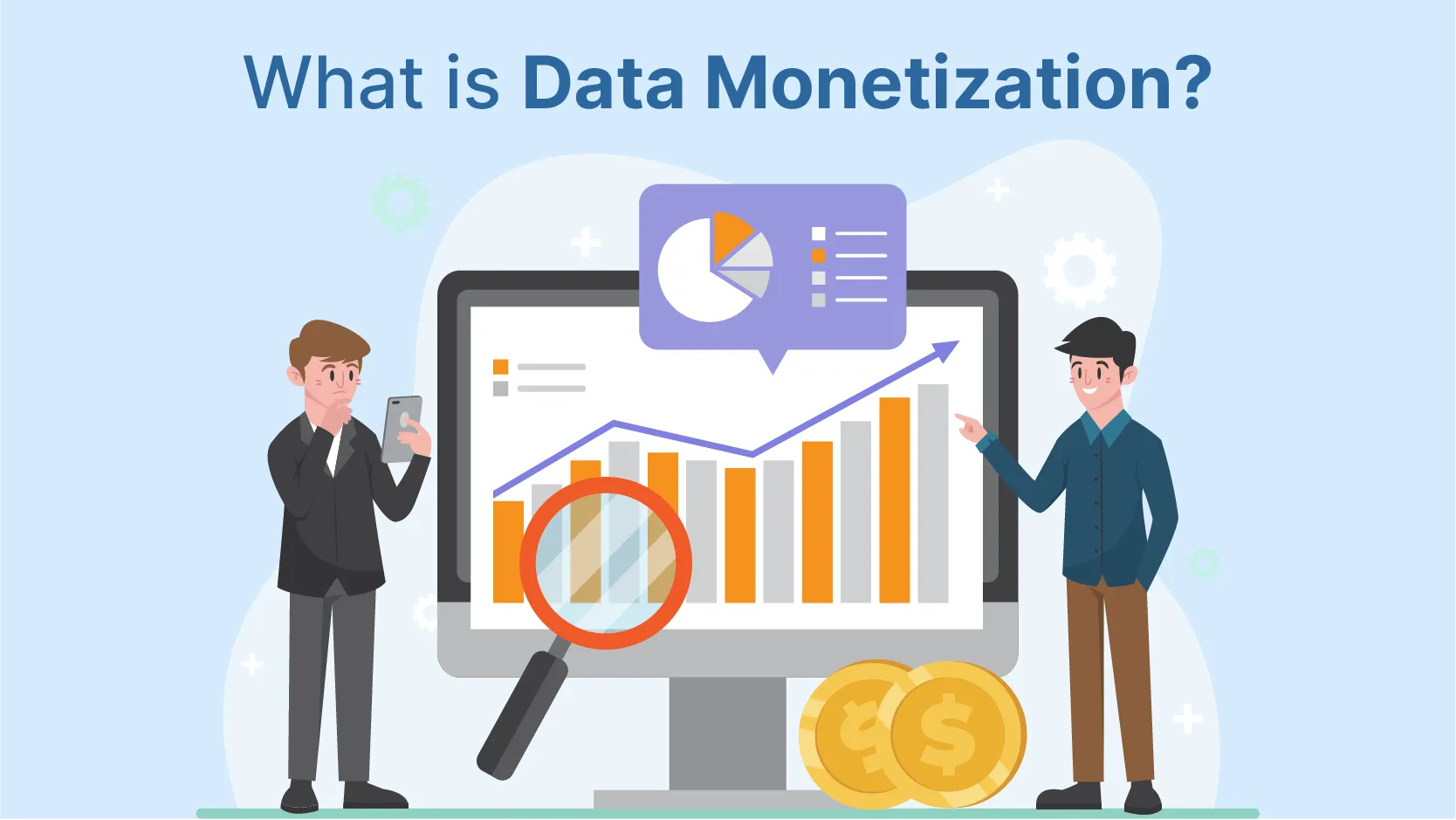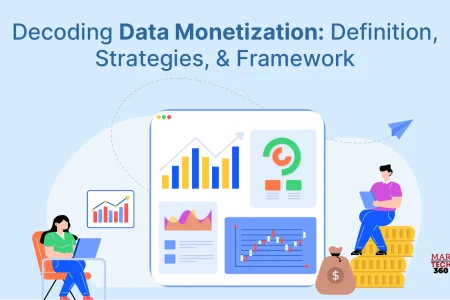Data has become the new oil that is propelling revenue for almost all organizations today. There is a tremendous amount of data that is generated through business operations, social media, and financial transactions that enterprises can make the most out of. However, many businesses find it challenging to have the best practices to gather, store, and process data gathered from multiple sources.
These hurdles highlight the growing importance of chief data officers (CDOs) role in making their data operations more streamlined and efficient. They are responsible for evaluating how consumers’ data can be leveraged for data monetization while being compliant with the laws enforced by the regulatory bodies. As Alphabet-backed Google is planning to remove third-party cookies, it has become crucial for organizations to develop and implement post-cookie data strategies to gather consumer information.
According to a McKinsey Global survey high-performing companies are three times more likely to report that their data monetization efforts contribute over 20% to their overall revenues compared to others.
There is immense potential for organizations to generate revenue streams through the data gathered from various sources. In this blog, we will have a look at the definition of data monetization, ways to prepare data, and data privacy in monetization.
What is Data Monetization?

Data monetization is an approach to leveraging data to make measurable economic benefits. Direct and indirect strategies encompass utilizing information to make quantifiable business performance enhancements and data-driven decisions. External or direct approaches to data utilization involve sharing data with business partners to secure more favorable terms or conditions, trading information through bartering, directly selling the data (whether through a data broker or on your own) or creating value by integrating information into your products or services as an added feature.
Also Read: Decoding Relationship Intelligence: Definition and Its Importance in B2B Space
Data Monetization Road Map
Once an organization has decided to embark on a journey to monetize its data, business leaders will have to design and establish a process in their operations. Following is a wider framework that decision-makers can consider to reap the complete benefits of data monetization strategies.
Gather, Unify, and Evaluate Data
It is critical to design, develop, and implement a data platform that can gather, store, and process data in a centralized server. Once the data is stored in fewer dashboards or interfaces, it streamlines the work for teams to execute, evaluate, and offer value to key stakeholders.
Business leaders should develop or purchase a data platform that allows both internal and external users to log in and find what they require sooner. This approach enables access to all users to execute their unique analytics and determine insights to optimize the value of the data collected.
Developing a data platform to meet the requirements of data monetization might need a substantial amount of investment and expertise. It is critical to have a cloud-based solution to meet the increasing demands of dataset size and processing capacity. These two factors will ensure that the data monetization roadmap is scalable according to the business needs.
In the next segment of the blog, let us have a look at ways businesses can brace themselves for data monetization.
Ways to Prepare for Data Monetization?
Enterprises need to have an efficient plan ready before they can reap the benefits of data monetization. Here are a few steps to consider:
● Evaluate Current Data and Understand the Future Collection Strategies
One of the key steps in prep for monetizing data is evaluating its true value. It includes executing a data audit for the information you gather as an enterprise and understanding what data offers value and which data needs investment of additional resources.
It is vital to remember that you cannot generate revenue streams from data that does not exist. CMOs should determine the potential opportunities for data points that are not currently evaluated either within the organization or in the particular industry.
● Get Buy-in From the Stakeholders
The initiative for monetizing data needs to be the decision of the top management. Decision makers should understand that only data evaluation will not help to save costs. If they design, implement, and execute the strategy correctly, it could be a reliable source to generate revenue streams.
It is crucial to explain to the top management the true potential of their data in order to get their buy-in and gather the best possible outcomes.
● Define the Audience
Once you have the buy-in from the stakeholders and understand the true value of your data, it is time to define who will purchase these data sets. The right target audience to sell the data will not specifically have to be a third party. The right audience can be any crucial department throughout the organization. There is a tremendous availability of AI-driven data monetization opportunities that allow organizations to improve their knowledge of client behavior. Such information is critical for sales departments, which helps them to have higher client conversion and retention rates.
● Define the Objectives
Before organizations embark on the journey of monetizing their data, it is necessary to have a clear understanding of their objectives. It is essential to have a better understanding of whether it is going to be an internal exercise for cost reduction or exploring opportunities to deploy a new data-as-a-service unit to your business. It is crucial to have a clear distinction before initiating the entire process. AI-driven data monetization strategies can help organizations achieve revenue goals and other objectives set by the organization.
Other than these strategies stakeholders need to ensure that their operations are in compliance with the regulations enforced by the authorities. Let us now have a look at the best practices to respect individual’s privacy while exploring the opportunities to monetize data.
9 Best Practises to Ensure Data Privacy in Monetization Landscape
To maintain consumer trust, comply with legal standards, and secure long-term growth, ethical data monetization is essential for businesses. This guide outlines ten best practices that can help organizations leverage their data responsibly while respecting individuals’ rights and privacy:
1. Encrypt and Aggregate Information
It is crucial to remove any personally identifiable information (PII) from datasets to protect sensitive data. Stakeholders can employ strategies like data masking, encryption, and pseudonymization to ensure privacy.
2. Get Clear Consent From the Consumer
Organizations should always seek explicit permission from individuals before gathering and utilizing their personal data. Clearly explaining the intended use of their data and honoring their preferences will help to create trustworthiness.
3. Honor Intellectual Property
It is essential to respect the contributions of original data creators and ensure you have the proper permissions when using existing data or models.
4. Enforce Stringent Data Governance Policies
Establish and enforce clear data governance guidelines for users for proper data handling, including its usage, security, and quality. Ensuring these policies comply with applicable laws and industry standards will help organizations uphold data privacy in monetization.
5. Adapt and Update Practices Continuously
Regularly review and update your data practices to align with evolving laws, enhance security protocols, and keep stakeholders well-informed to ensure seamless execution.
6. Encourage Transparency and Accountability
Openly communicate your data practices to the consumer and to the employees. CDOs should take responsibility in the event of data breaches or misuse and provide users with options to manage their privacy.
7. Promote Fairness and Address Bias
Regularly evaluate the algorithms and models for bias to prevent any form of discrimination or negative impact on specific groups.
8. Strengthen Data Privacy and Security
Safeguarding customer information against unauthorized access, misuse, or disclosure is essential for data privacy in monetization. Implementing robust security measures like encryption, strict access controls, regular audits, and detailed incident response plans will help organizations strengthen their data privacy protocols.
9. Cultivate an Ethical Data Culture
Embed data ethics into the organization’s core values by emphasizing transparency, security, and fairness in all data-related activities.
Concluding Data Monetization
In today’s landscape, data stands as one of the most valuable assets for any organization. However, using this data effectively also means respecting individual privacy rights. To ensure data privacy in monetization, organizations must ensure that their data is well-organized, legally acquired, properly managed, and securely protected. For companies looking to sell their data, full compliance with relevant regulations is essential.

